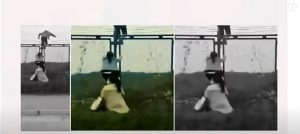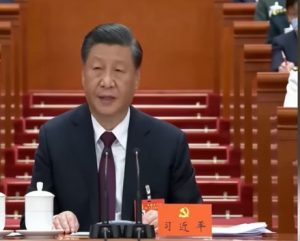“Give Us Freedom” says people in China in covid lockdowns

Almost a hundred cities in China are now under limited or full lockdown as Xi Jinping country continues to implement its zero-COVID policy but on social media, the Chinese citizens have had enough and are asking for their freedom of movement.
Chinese residents are now running short on food and have inadequate or no access to medical care. Videos posted on social media are showing crowds screaming, “Give us freedom, give us freedom!”
Will the lockdowns ever end?
In Taiwan, the reopening of borders and phasing out of quarantine policies was announced and carried out in September. South Korea followed suit by lifting its outdoor mask mandate and scrapping compulsory COVID-19 testing for incoming tourists.
Then in October, Japan reopened its borders and ended its pre-departure test requirement for foreign tourists and local travelers who have received at least one vaccine booster. Hong Kong, which matched mainland China’s strict border controls, also ended all its hotel quarantine prerequisites for international influxes.
These countries and territories have adopted a more flexible approach because they have recognized that COVID-19, while still pervasive, is now a controllable disease and that the strict containment of people has proven to be very costly, economically and subconsciously speaking.
Instead of exerting effort to “go back to normal,” China doubled its omnipresent “zero COVID” strategy. It remains to pursue its rigorous border regulations, antagonistic seclusion of close contacts, abrupt closures of airfields and community spaces, and instant lockdowns of localities and even entire cities.
Related Stories:
China places 5 million more under lockdown to stamp out virus cluster
China locks down another three million after travelling salesman spreads virus
How China is keeping to its strict ‘zero Covid’ strategy
To illustrate how the lockdowns have impacted people, here’s the transcript of an interview conversation between Marketplace host Amy Scott and Jennifer Pak, Marketplace’s China correspondent, on how life in China looks like:
Scott: Wow. And Jennifer, you’ve not only reported on life under lockdown, you’ve actually lived this when Shanghai was locked down for two months. Can you talk about what it was like just trying to get food?
Pak: Yeah, it was surreal. Because I had the money, I just couldn’t get what I wanted when I wanted it. So, at one point, I paid $188 for a box of Italian cured meats because there was bacon in it. But then, of course, they messed up the order, and I was able to snack on gourmet salami, but no bacon. There was a convenience shop owner nearby me who ate nothing but instant noodles for weeks. And then the next question is, you know, when you get the food, how long do you make it last for? How do you make it last? And that’s the thing — nobody told us when it was going to end.
An October 28 Bloomberg News report indicated that a survey by the Japanese bank Nomura found that the current number of Chinese under Covid control measures is around 232 million. Analysts said that “Lockdowns are being enforced even more rigorously since the Party congress concluded.”
“Bolting, breaking out” but not from Covid
According to Xiang Biao, director at the Max Planck Institute for Social Anthropology in Germany who focuses on migration, “It’s migration driven by a sense of disillusion. People are not running away from the virus. People are running away from such top-down measures and disregard of individuals’ feelings and dignity.”
In Shanghai — where people had a hard time feeding themselves as they watched family members die for not getting medical attention for non-covid emergencies, there was an outpouring of migration inquiries after confused and random lockdown procedures were implemented.
Such intention to break away from their current situation is explicitly manifested when online media was bombarded with search words such as “emigration,” “good immigration destinations,” and “requirements for immigrating to Canada and Malaysia.” According to published data, these internet inquiries increased by 500% as restrictions continued.
Lockdown “Understatements” of the Century
To make things sound a little less disagreeable, Chinese officials have found ingenious phrases to depict the lockdowns. Since the measures have become so provocative, divisive, and feared, they created arcane “official speak” to make the situation sound more pleasant.
Thus, they used phrases like “stasis management,” “at-home stillness,” or to make it sound less horrible, “stillness throughout the whole region” or “stop all unnecessary movement,” as reported to BBC News.
Then came the mystifying “temporary societal control,” which authorities said was not a “lockdown” but a concentrated movement that in some way would not disturb the “normal order of production and life.” Yet, “the public was asked not to go out unless necessary.”
Another idiom devised was “enclosed management” which was conceived in the southern province of Guangdong. It means that the village, district, or residential compound is walled in, with checkpoints at entry points and exits. People and vehicles are still allowed to enter and leave but must have passes. Those people who do not reside or work in these enclosed areas are strictly prohibited from entering. As expected, residents were told, it is NOT a lockdown.
Lockdown And Freedom
At the bottom of all of these, local governments are running out of money. According to an analysis published on Foreignpolicy.com, the Chinese government is confronted with an almost $1 trillion funding gap.
Enjoying this article?
Subscribe to get more stories like this delivered to your inbox.
Public revenue is down 9.2% year on year. Previously, local governments fill in the gaps by selling property, however, the property crisis denotes that developers are no longer enthusiastic or willing to buy.
Will the ‘new’ Xi administration hear the calls for freedom of movement, to the least, from the people?
Without the freedom to go to work, to manage factories for example, there is no production and part of the country remains at a standstill.
Related Story:
Shanghai: Disney Resort shuts down amid Covid-19 fears, visitors not allowed to leave
While none of these might lead to total economic downfall, it is expected to yield painful austerity, an anxious effort of “getting by,” with tiny optimism for a substantive change in sight.
Zero-Covid = Zero-growth?
As soon as Xi will be installed for a new term in office, the administration will have to eventually deal with its pandemic management issue. At present, the government seems doubtful of altering its approach. This because Xi’s stature is directly and indistinguishably attached to the triumph of the zero-COVID program. An abrupt strategy move is equivalent to acknowledging failure. This naturally will destabilize Xi’s political authority within the party and the whole of China.
With China’s worsening economic prospects, Beijing is left with little choice. With the


ongoing real estate catastrophe intensely hurting the region, the zero COVID policy has shown to wreak long-term mutilation on China’s economic and social development strategy.
Read More News:
PSY is gradually fading from memory. Is he going to make a comeback?
Journalist
